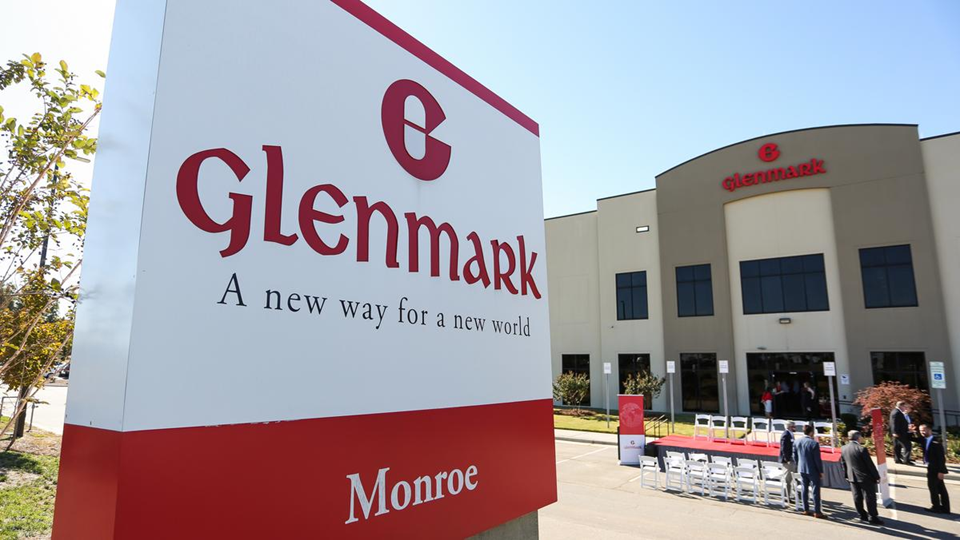Glenmark Pharmaceuticals’ innovation subsidiary has made headlines across India and the global pharmaceutical industry by announcing a landmark licensing agreement with US-based AbbVie. The deal, valued at nearly $2 billion, marks one of the largest ever for an Indian-origin biotech asset and is being hailed as a transformative moment for Indian pharmaceutical research and development. The agreement centers on Glenmark’s novel cancer drug candidate, ISB 2001, and is set to reshape the company’s future while elevating India’s standing in global pharma innovation. Here are seven game-changing impacts and all the essential details behind this historic deal.
The Glenmark-AbbVie deal also highlights the increasing global recognition of India’s pharmaceutical research capabilities. For years, Indian pharma companies have been known primarily for generic drug manufacturing, but this agreement signals a shift towards innovation-driven growth. It showcases India’s potential to contribute novel therapies to the global healthcare ecosystem, elevating the country’s status from a “pharmacy of the world” to a hub of cutting-edge drug discovery.
This partnership is expected to accelerate the pace of innovation within Glenmark itself. With the substantial financial backing and access to AbbVie’s global infrastructure, Glenmark can now focus more resources on developing its pipeline of novel molecules. This could lead to a faster turnaround of promising candidates from the lab to clinical trials, ultimately benefiting patients through earlier access to new treatments.
The collaboration also underscores the importance of strategic alliances in the pharmaceutical industry. By partnering with a global leader like AbbVie, Glenmark gains not only capital but also expertise in regulatory affairs, clinical development, and global marketing. Such synergies are crucial for navigating the complex and costly path of drug development, especially for emerging biotech firms looking to scale internationally.
From a patient perspective, the deal holds promise for improved treatment options in multiple myeloma, a disease that remains difficult to cure and often relapses after standard therapies. ISB 2001’s trispecific antibody approach aims to enhance the immune system’s ability to target cancer cells more effectively, potentially offering longer-lasting remissions and better quality of life for patients worldwide.
The financial windfall from the deal also positions Glenmark to invest in next-generation technologies such as gene editing, cell therapies, and artificial intelligence-driven drug discovery. These areas represent the future of medicine and could further transform Glenmark into a global innovation powerhouse, driving sustained growth and competitiveness.

1. Record-Setting Deal Structure
Glenmark’s innovation subsidiary has granted AbbVie exclusive rights to develop, manufacture, and commercialize ISB 2001 in key global markets, including North America, Europe, Japan, and Greater China. Glenmark retains commercialization rights in emerging markets such as India, Latin America, Russia, the Middle East, Africa, Australia, New Zealand, and South Korea. The financial terms include a $700 million upfront payment and up to $1.225 billion in development, regulatory, and commercial milestone payments, along with tiered, double-digit royalties on net sales. This structure not only secures immediate capital for Glenmark but also ensures long-term revenue streams as ISB 2001 progresses through development and commercialization.
2. ISB 2001: A Novel Trispecific Antibody
ISB 2001 is described as a first-in-class trispecific antibody, developed using Glenmark’s proprietary technology platform. It targets three antigens—BCMA, CD38, and CD3—offering a novel approach in the treatment of relapsed or refractory multiple myeloma, a challenging blood cancer. The drug is currently in Phase 1 clinical trials and has shown promising early results, including high response rates and deep remissions in patients who have exhausted other treatment options.
3. Strategic Rationale for the Partnership
AbbVie’s interest in ISB 2001 is based on the molecule’s unique mechanism and strong early clinical data. Trispecific antibodies like ISB 2001 represent a new frontier in immuno-oncology, with the potential to deliver more effective and durable responses by engaging multiple targets simultaneously. The partnership allows Glenmark to leverage AbbVie’s global development and commercialization capabilities, accelerating the path to market for ISB 2001 and maximizing its potential impact for patients worldwide.
The Glenmark-AbbVie agreement is also expected to stimulate greater collaboration between Indian pharmaceutical companies and global industry leaders. As international firms take note of the innovation emerging from India, more partnerships, joint ventures, and co-development agreements may follow, accelerating the pace of discovery and commercialization for Indian biotech assets.
This deal has sparked renewed interest from investors in the Indian pharmaceutical and biotech sectors. The validation provided by a major global player like AbbVie has boosted confidence in the potential of Indian innovation, leading to increased funding for research-driven companies and start-ups. This influx of capital is likely to fuel further breakthroughs and strengthen the ecosystem for high-value drug development.
The success of ISB 2001 could pave the way for more Indian-origin drugs to enter advanced clinical trials and global markets. As Glenmark and AbbVie advance the molecule through late-stage development, other Indian companies may be encouraged to invest in early-stage research, knowing that there is now a proven path to international licensing and commercialization.
4. A Turning Point for Indian Pharma Innovation
This agreement is being celebrated as a turning point for the Indian pharmaceutical and biotech sector. The scale of the upfront payment and the global validation of Glenmark’s R&D capabilities signal a major shift in how Indian innovation is valued internationally. Industry observers see this as a testament to years of investment, scientific rigor, and risk-taking by Indian companies in pursuit of breakthrough therapies.

5. Impact on Glenmark’s Financials and Strategy
The financial impact of the deal is immediate and significant. Glenmark’s share price surged following the announcement, reflecting investor confidence in the company’s innovation-led strategy. The upfront payment provides a substantial cash inflow, which Glenmark can use to reduce debt, fund further research and development, and strengthen its pipeline of novel therapies. The company has indicated that it will use proceeds to support additional assets in its innovation portfolio, further reinforcing its commitment to high-value drug discovery.
There are also significant implications for talent development within India’s life sciences sector. The spotlight on Glenmark’s scientific achievements is likely to attract top researchers, clinicians, and industry professionals to the country’s growing biotech hubs. This talent influx will help sustain the momentum of innovation and ensure that Indian companies remain competitive on the global stage.
The Glenmark-AbbVie partnership may influence government policy and regulatory frameworks in India. Policymakers could be prompted to further incentivize innovation, streamline approval processes, and support public-private partnerships to nurture a robust pipeline of novel therapies. Such measures would enhance India’s position as a preferred destination for pharmaceutical R&D and investment.
Ultimately, this landmark deal is a testament to the power of perseverance, scientific excellence, and strategic vision. It demonstrates that with the right combination of innovation, collaboration, and global outlook, Indian pharmaceutical companies can achieve breakthroughs that benefit patients worldwide and redefine the nation’s role in the international healthcare landscape.
6. The Road Ahead: Development and Market Potential
With AbbVie now leading global development and commercialization in major markets, ISB 2001 is expected to advance rapidly through clinical and regulatory milestones. Glenmark will remain actively involved via joint committees and retains key rights in emerging markets, including India. Commercialization of ISB 2001 is anticipated within the next several years, subject to regulatory approvals. The global market for multiple myeloma therapies is substantial, and ISB 2001’s unique approach could capture a significant share if clinical success continues.
7. Broader Implications for Indian Biotech
The Glenmark-AbbVie deal sets a new benchmark for Indian biotech, demonstrating that homegrown innovation can command global terms and compete with the world’s best. It is expected to encourage further investment in Indian R&D, inspire other domestic companies to pursue high-risk, high-reward innovation, and attract international partnerships. The deal also highlights the growing sophistication of India’s biotech ecosystem, from early research to late-stage clinical development and global licensing.
Conclusion
Glenmark’s landmark licensing deal with AbbVie for ISB 2001 is a watershed moment for Indian pharma and biotech. It validates years of scientific investment, brings unprecedented financial rewards, and positions Glenmark—and India—at the forefront of global drug innovation. As ISB 2001 advances through clinical trials and, potentially, to market, the partnership is set to deliver new hope to patients with multiple myeloma and reshape the landscape for Indian-origin pharmaceuticals worldwide.
The deal’s success may encourage other Indian biotech companies to pursue bold, innovation-led strategies rather than focusing solely on generics or biosimilars. It sets a precedent that high-risk, high-reward research can attract significant global investment and recognition, inspiring a new generation of Indian scientists and entrepreneurs.
Regulatory cooperation will be a critical factor in the success of ISB 2001’s development. Glenmark and AbbVie will need to work closely with health authorities across multiple jurisdictions to ensure timely approvals. Their ability to meet stringent safety and efficacy standards will determine how quickly the drug can reach patients in need.
The partnership also has implications for India’s healthcare ecosystem, potentially improving access to advanced therapies in emerging markets. By retaining commercialization rights in India and other regions, Glenmark can tailor pricing and distribution strategies to local needs, helping bridge gaps in cancer care availability.
Finally, this deal reinforces the growing trend of Indian pharmaceutical companies becoming global players not just in manufacturing but in innovation, research, and development. It signals a maturation of the industry and a new chapter where India contributes meaningfully to solving some of the world’s most challenging health problems through science and collaboration.
Follow: Glenmark


